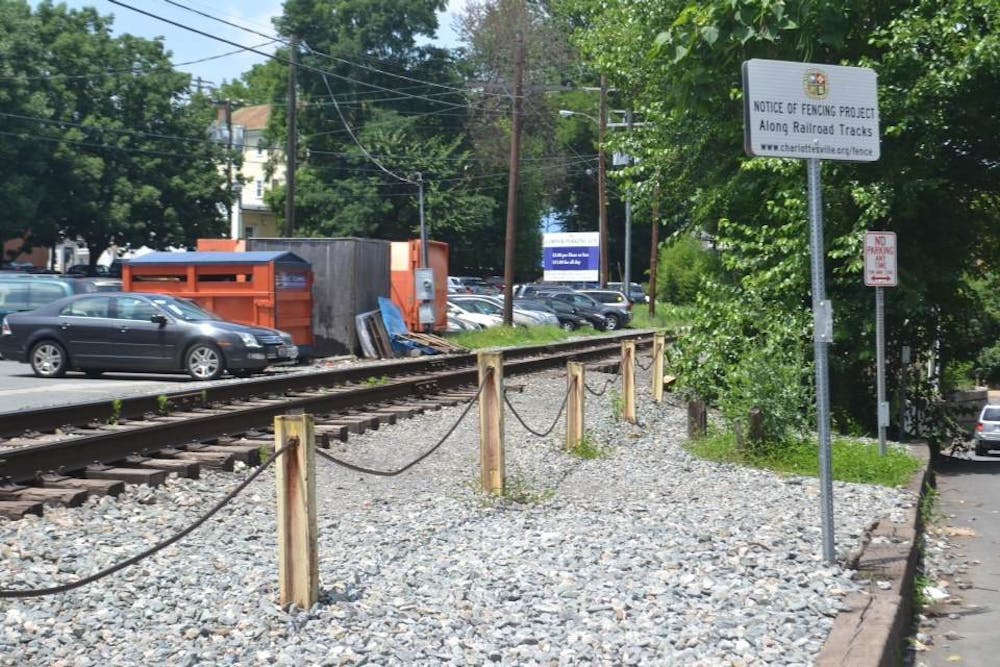During the summer, the City of Charlottesville announced its plan to construct a fence on the western side of railroad tracks between 14th Street and Rugby Road. The fence was commissioned in 2010 when the City was granted federal funding and was to be completed by the end of the summer, but has since been delayed.
Jeanette Janiczek, Urban Construction Initiative Program Manager for Charlottesville, said construction delays were due to a problem with funding authorization.
“City receipt for federal authorization to advertise caused the start of construction to be pushed back to Fall 2014,” Janiczek said.
Janiczek said the fence is now expected to be built by Oct. 2014.
Jim Tolbert, Charlottesville’s director of neighborhood development services, said construction will begin soon.
“Contracts have been signed and they should be starting construction within the next couple of weeks,” he said.
The fence is intended to prevent Charlottesville residents, particularly University students, from crossing the train tracks instead of walking around the block. In addition to causing safety concerns, foot traffic near the railroad tracks has caused decreased vegetation along the embankments, which serve as erosion protection. An increase in litter has also been attributed to the regular use of the train tracks by pedestrians.
Currently, the only deterrents against cut-through traffic are “No Trespassing” signs and a calf-high rope fence. According to the City proposal, the tracks cannot be monitored at all times, and even ticketed violations distributed by Charlottesville Police have failed to curb the number of trespassers.
The fence will take the form of a seven-foot welded steel barrier.
The project is managed by the City of Charlottesville, Buckingham Branch Railroad and CSX Railroad, also receiving support from the University. Construction funds will come from the Virginia Department of Transportation and Federal Highway Administration.
Despite its stated aim of improving student safety, the plan has faced vocal if informal opposition from the University’s student body. Currently, there are few accidents on record as a result of crossing the train tracks, and the fence is expected to cost roughly $234,100.
Second-year College student Carson Creasy said a fence surrounding the tracks would prove problematic for many students.
“I can see from the perspective of the City and University that [erecting a fence] would make sense, seeing as it is illegal to cross the train tracks,” Creasy said. “From a student perspective, however, it’s just pretty inconvenient. It’s a nice cut-through to getting back to apartments, and it makes walking along the Corner much more accessible.”







